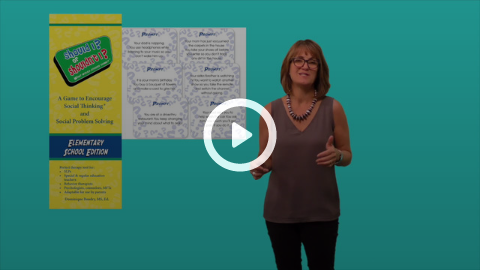
Click image to zoom.
Double click image to zoom.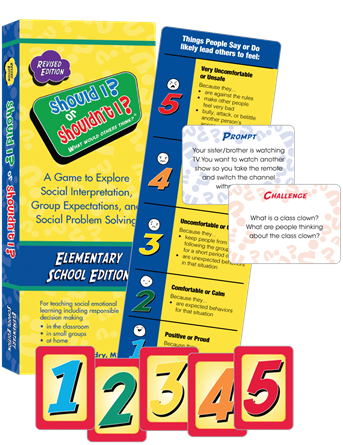

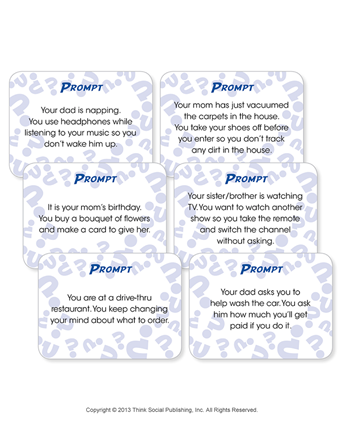
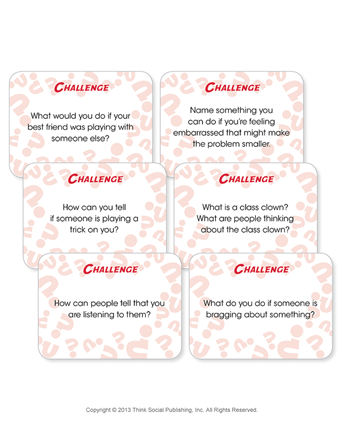
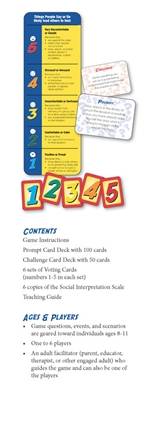
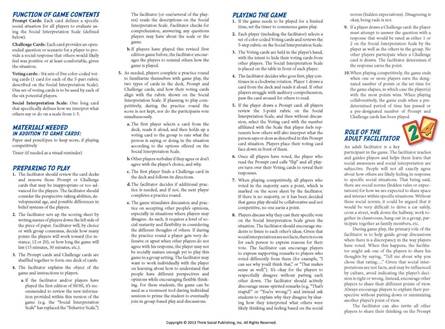
- Ages: 8-11
- Format: Game
- ISBN: 9780970132000
- Published: 2013
Description
The Should I? or Shouldn’t I? Revised Elementary Edition game for ages 8-11 makes thinking and talking about the social world fun and allows players to explore their own thoughts, perspectives, and choices within a safe and consequences-free environment. Game play offers abundant opportunities to practice Social Thinking concepts, perspective taking, and problem solving and discuss how we all affect one another. The game can help students explore how their social interpretations might impact their own actions and reactions, and vice versa. The situation cards can also be used to foster authentic discussions about social problem solving for responsible decision making. The game is based on Social Thinking concepts and vocabulary from the Social Thinking® Methodology.
Object of the Game
One player reads aloud a social situation, then all players rate their social interpretation in that situation on the new Social Interpretation Scale. Players then compare how their ratings match or don’t match those of the other players. The object of the game is to match their social interpretation rating to other players, given the shared social expectations. Players score points when their ratings match with other players.
About the Game
One of the key aspects of being a social thinker is considering the thoughts and feelings of others, also called perspective taking. Perspective taking is one of the more complex and challenging concepts to teach because it is not one skill. Perspective taking involves thinking about the situation or context, one’s own thoughts and feelings, thoughts and feelings of others, and one’s own/others’ problem solving and response choices in that context. It also involves self-awareness and self-regulation. (Read more about the Five Steps of Being with Others).
This game is designed to give children a fun and motivating way to discuss age-relevant issues in a nonjudgmental setting. The game fosters important exploration of social situations that elementary-aged students may encounter at home, at school, and while they are out and about in the community.
The Elementary Edition game is for both neurotypical and Neurodivergent children because most students can benefit from learning about social expectations and how all of us impact one another when sharing space together.
Contents:
- Game Instructions
- 100 Prompt cards to practice perspective taking
- 50 Challenge cards that help generalize learning
- 6 sets of Voting Cards (numbers 1-5 in each set)
- 6 copies of the Should I or Shouldn’t I? Social Interpretation Scale
- Teaching Guide
- Ages and Players
- Game questions, events, and scenarios are geared toward individuals ages 8-11
- 1 to 6 players
- An adult facilitator (parent, educator, therapist, or other engaged adult) who guides the game and is also one of the players
Therapeutic Uses
The Should I? or Shouldn’t I? game is best suited for individuals with solid expressive and receptive language and who have emerging awareness of how the social world works. It requires players to use perspective taking on two levels. First, they must think about the situation posed on the Prompt card, the social expectations in that situation, and then determine how to “rate” their interpretation. Second, players then compare their responses to other players’ responses to learn if their social expectations and interpretations align with what others agree would be an expected response for that particular situation.
The game can be played across various settings: a clinical setting as a therapeutic tool, in a general education classroom to discuss different perspectives, social learning groups, and at home with parents and siblings.
What’s different about this revised elementary edition
The game is largely identical to the original edition released in 2013, with these exceptions:
Most significant update—the Behavior Scale is significantly revised and renamed the Social Interpretation Scale. It provides a series of options and emojis to assist players with voting choices. (See below to contrast the old scale vs. the new scale.)
Game Instructions and Teaching Guide are updated with latest teaching around the Social Emotional Chain Reaction (SECR) to explore each person’s role in the social evaluation process when participating in the social world.
The Social Thinking Vocabulary glossary section has been removed from the Teaching Guide.
The core game play instructions and all the decks (100 Prompt and 50 Challenge cards) have not changed.
How the new scale shifts focus from one’s behavior to engagement in social interpretation
Want More Cards? Check out the Expansion Pack!
Get 200 new Prompt cards and 100 new Challenge cards with the Should I? or Shouldn't I? Elementary School Expansion Pack. These 300 additional cards cover various age-related situations encountered at school, home, and in the community.
Looking for something for older kids? Check out the Should I? or Shouldn’t I? What Would Others Think? Revised Edition for Teens Game and Expansion Pack!
Tell us something good!
What People are Saying
Related Materials

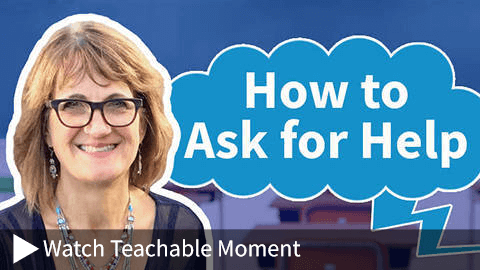
Instructor: Michelle Garcia Winner
It’s human nature to want to help others, but it’s often difficult for people to ask for help, especially those with social emotional learning differences. In this webinar, we’ll discuss why children, students, and adults may resist help or refuse to ask for it and we’ll deconstruct the multi-step process through which we ask for help. We’ll also explore the social emotional benefits for all participating in this unique and rewarding relationship.






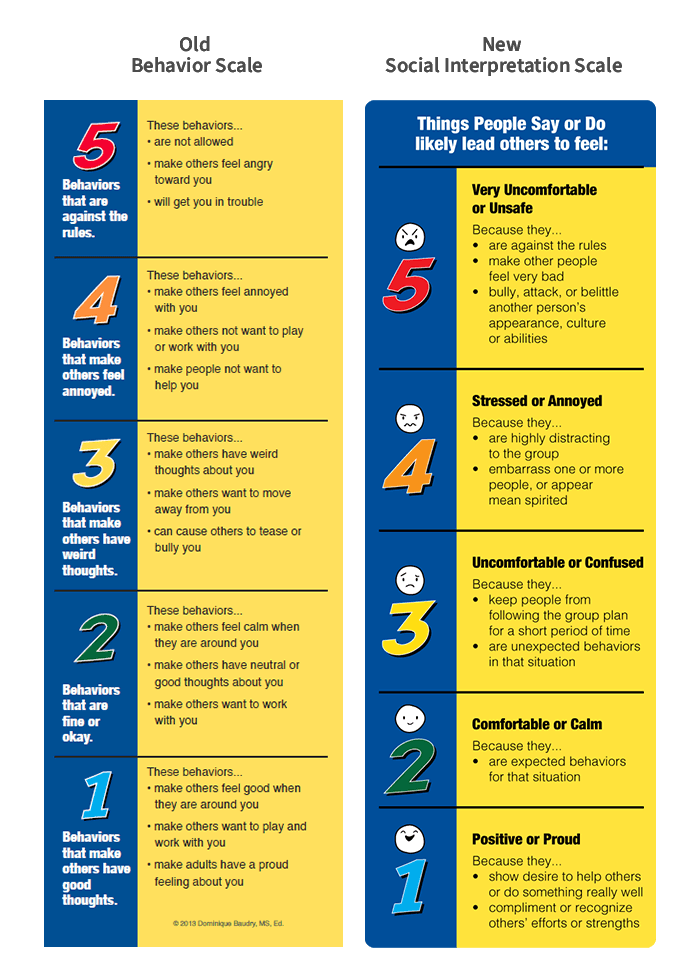
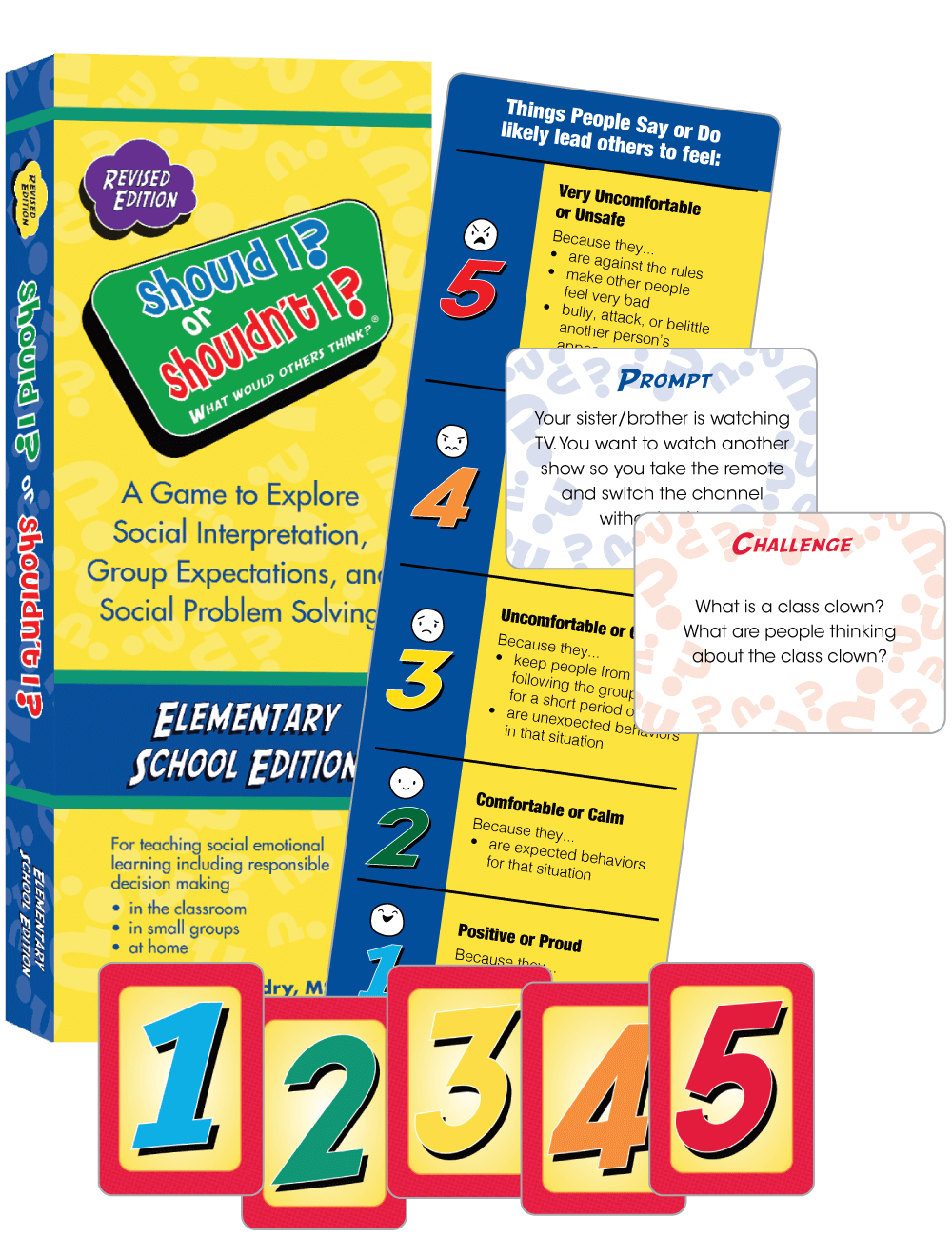
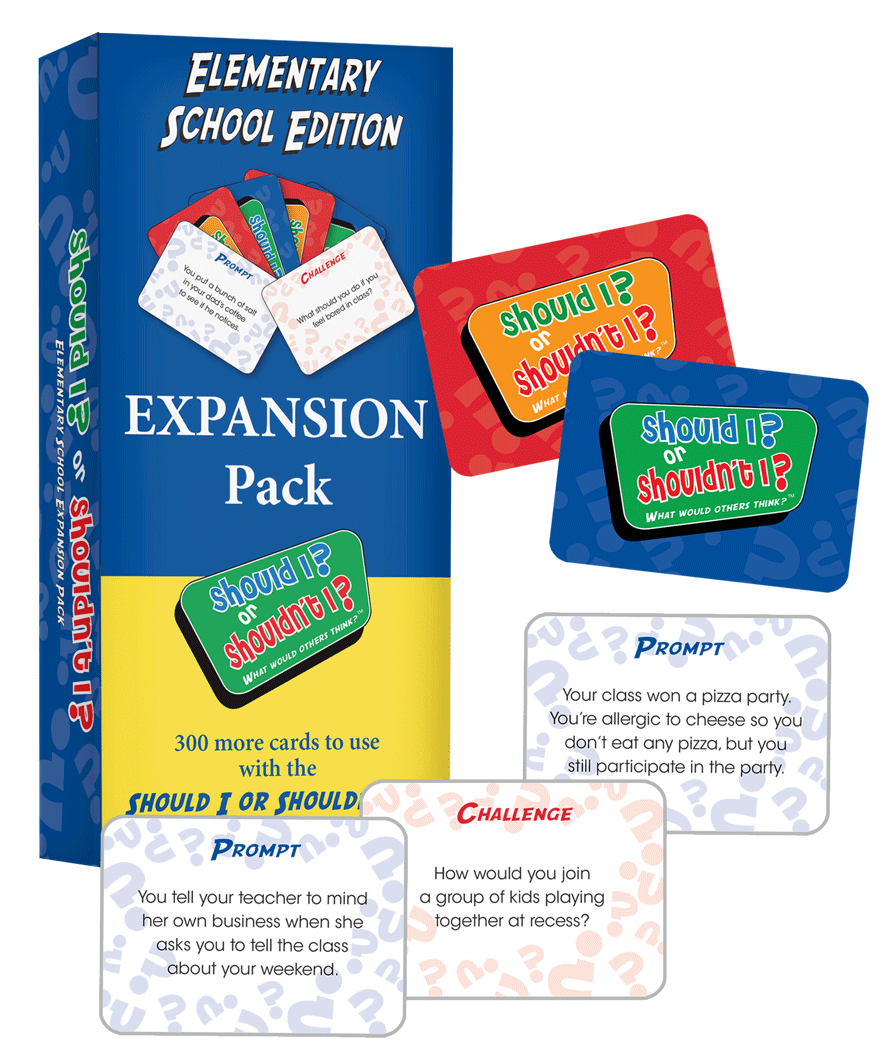
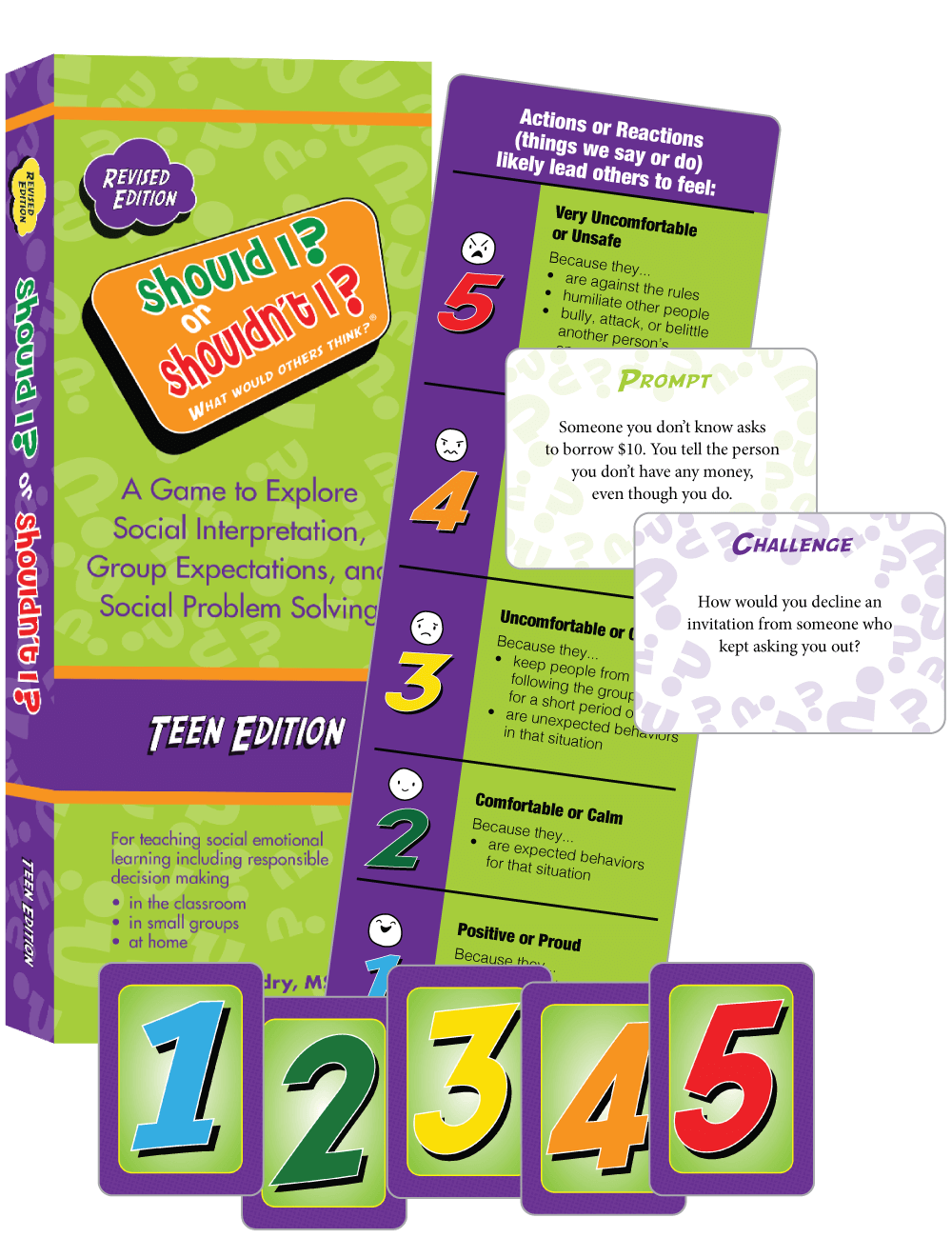
Should I? or Shouldn't I? Revised Elementary Edition
Tell us something good!
There was a problem adding this comment. Plaease try later.
Please log in